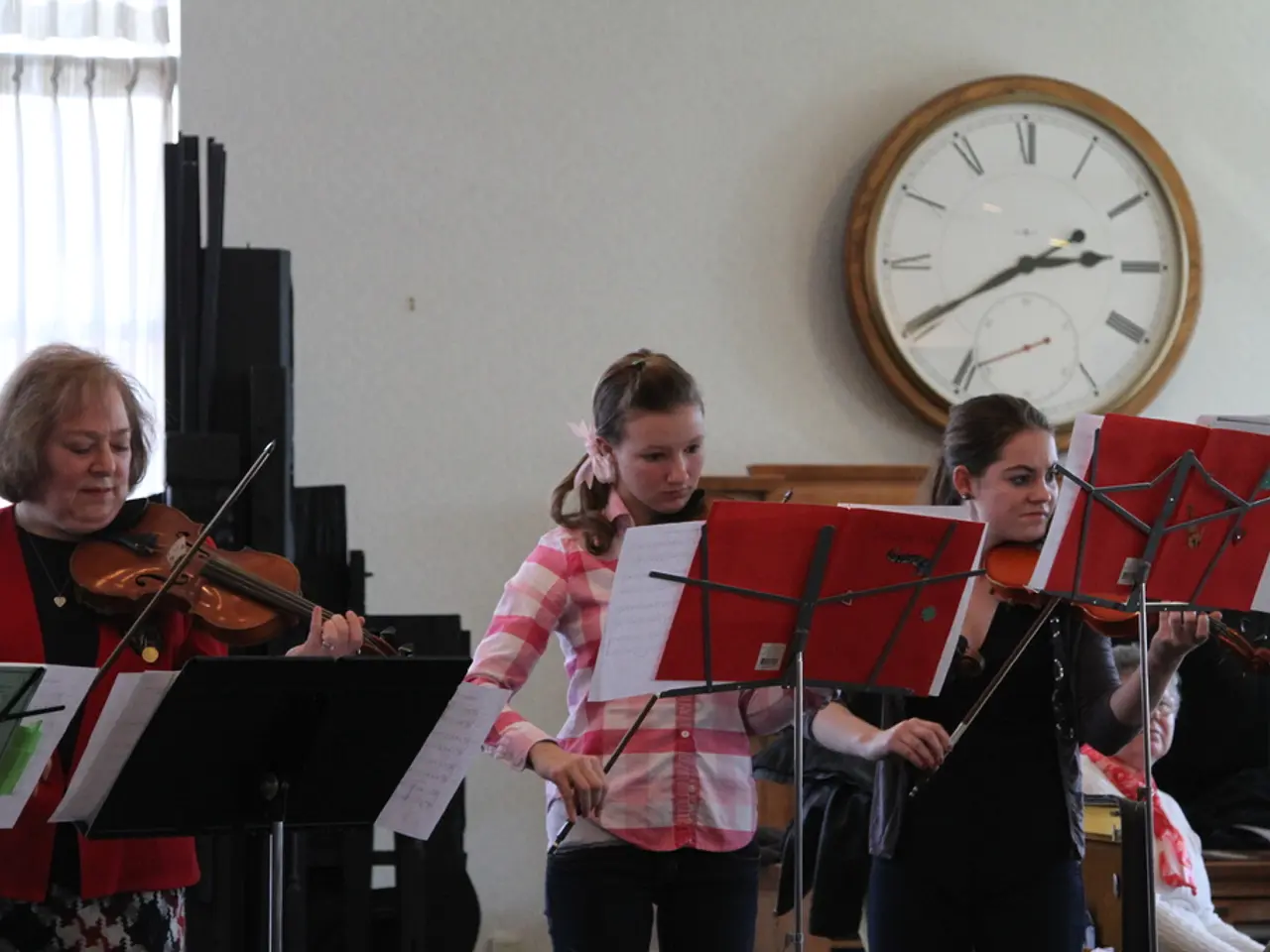Germany's populace leans towards escalation in military expenditure and reinstatement of mandatory military service - Germany sees broad support for increased military spending and reinstatement of conscription
In a recent Forsa poll conducted for Redaktionsnetzwerk Deutschland, it was revealed that a significant number of German political parties' supporters are in favour of increasing defense spending [1][2].
The poll findings suggest that defense spending doubling by 2032 is widely supported by major German political parties' supporters: 92% of CDU/CSU voters, 75% of SPD voters, and 76% of Green Party voters back this increase. However, the Left Party and AfD supporters largely oppose it, with 59% and 52% respectively expressing their opposition.
Regarding conscription, the German government, led by Defense Minister Boris Pistorius, has proposed legislation that would allow the Cabinet, with parliamentary approval, to call up conscripts if necessary to rapidly enhance military capabilities. This proposal aims for a middle ground between conservatives favoring reinstating mandatory military service and leftist opposition against it. The new military service framework is targeted for implementation by 2026 amid evolving European security challenges [3].
The poll also highlights a significant public reluctance to personally defend the country militarily. Nearly 60% of respondents are not likely or definitely not willing to defend Germany with a weapon in case of an attack. Only 16% of respondents are willing to defend Germany with a weapon, while 22% are likely to do so.
Interestingly, the poll found that women's rejection of defending Germany with a weapon in case of an attack is significantly higher at 72%, compared to men's 46%. Additionally, a majority of those aged 18 to 29 oppose the reintroduction of conscription, while older respondents are half as likely to oppose it.
The poll was conducted by Forsa for Redaktionsnetzwerk Deutschland on July 28 and 29. The statistical error margin of the poll is given as plus/minus three percentage points.
- CDU/CSU: Strong support for increased defense spending; generally favor strengthening military capacity, including conscription measures.
- SPD and Greens: Majority support defense spending increase (around 75%) but have more nuanced positions on conscription, balancing security needs and social considerations.
- Left Party and AfD: Substantial opposition to boosting defense budgets and conscription plans.
These findings provide valuable insights into the public's stance on defense spending and conscription in Germany, offering a foundation for further discussions and policy-making.
[1] Forsa (2022). Forsa Umfrage: Mehrheit der CDU/CSU-Wähler für höhere Verteidigungsausschüttungen. Retrieved from https://www.forsa.de/presse/forsa-umfrage-mehrheit-der-cdu-csu-waehler-fuer-hohere-verteidigungsausschuetungen/
[2] Redaktionsnetzwerk Deutschland (2022). Mehrheit der CDU- und CSU-Wähler für höhere Verteidigungsausschüttungen. Retrieved from https://www.rnd.de/politik/mehrheit-der-cdu-und-csu-waehler-fuer-hoere-verteidigungsausschuetungen-a-101.html
[3] Redaktionsnetzwerk Deutschland (2022). Bundeswehr: Pistorius will Konkursprüfung der Wehrpflicht vorbereiten. Retrieved from https://www.rnd.de/politik/bundeswehr-pistorius-will-konkurspruefung-der-wehrpflicht-vorbereiten-a-101.html
- The poll findings indicate that a majority of supporters across EC countries' political parties are advocating for increased defense spending, with the CDU/CSU, SPD, and Green Party voters favoring the policy.
- While politics and general news continue to shape discussions surrounding defense spending and conscription in Germany, the poll results demonstrate that a significant number of Germans are reluctant to personally defend their country militarily.







